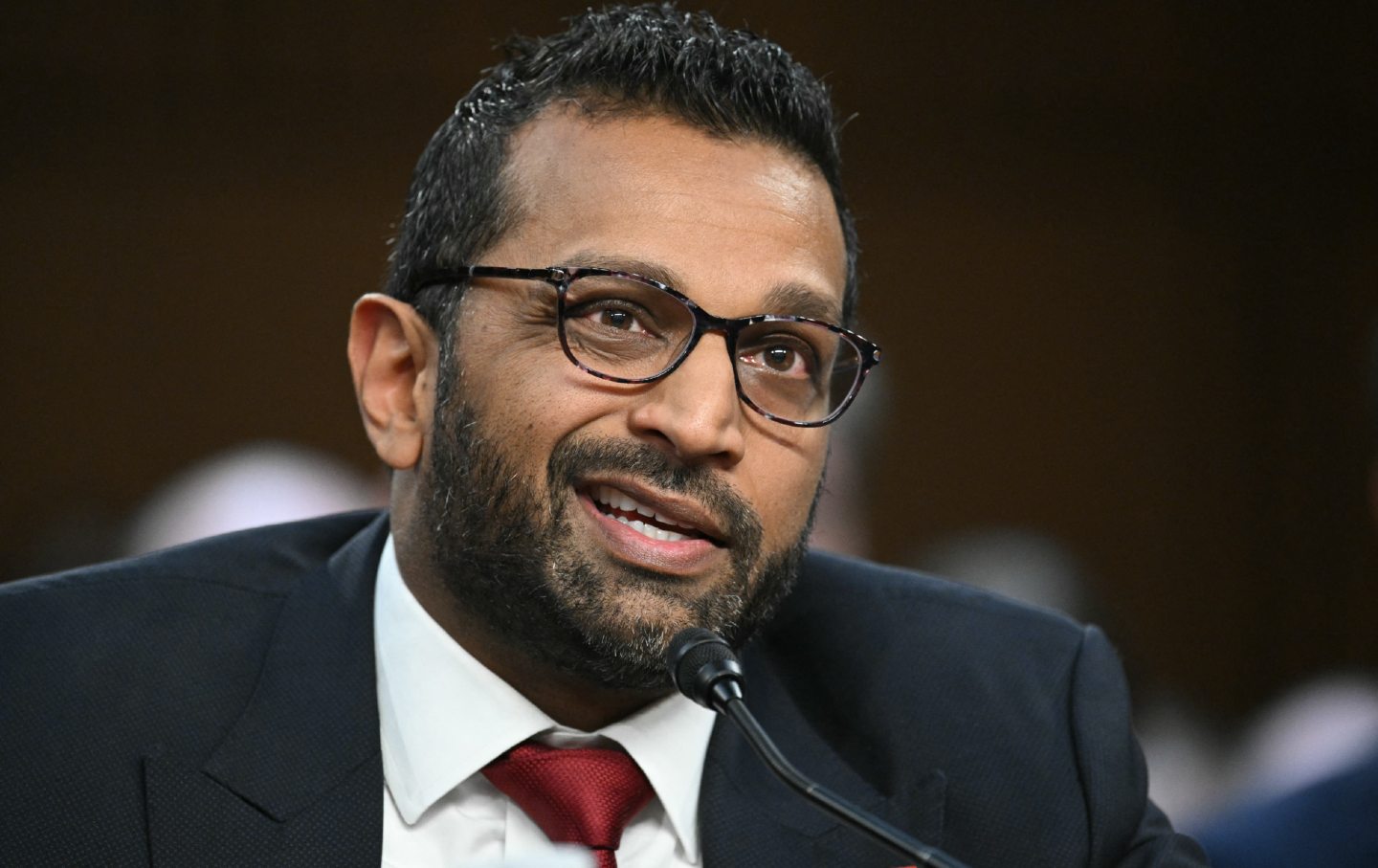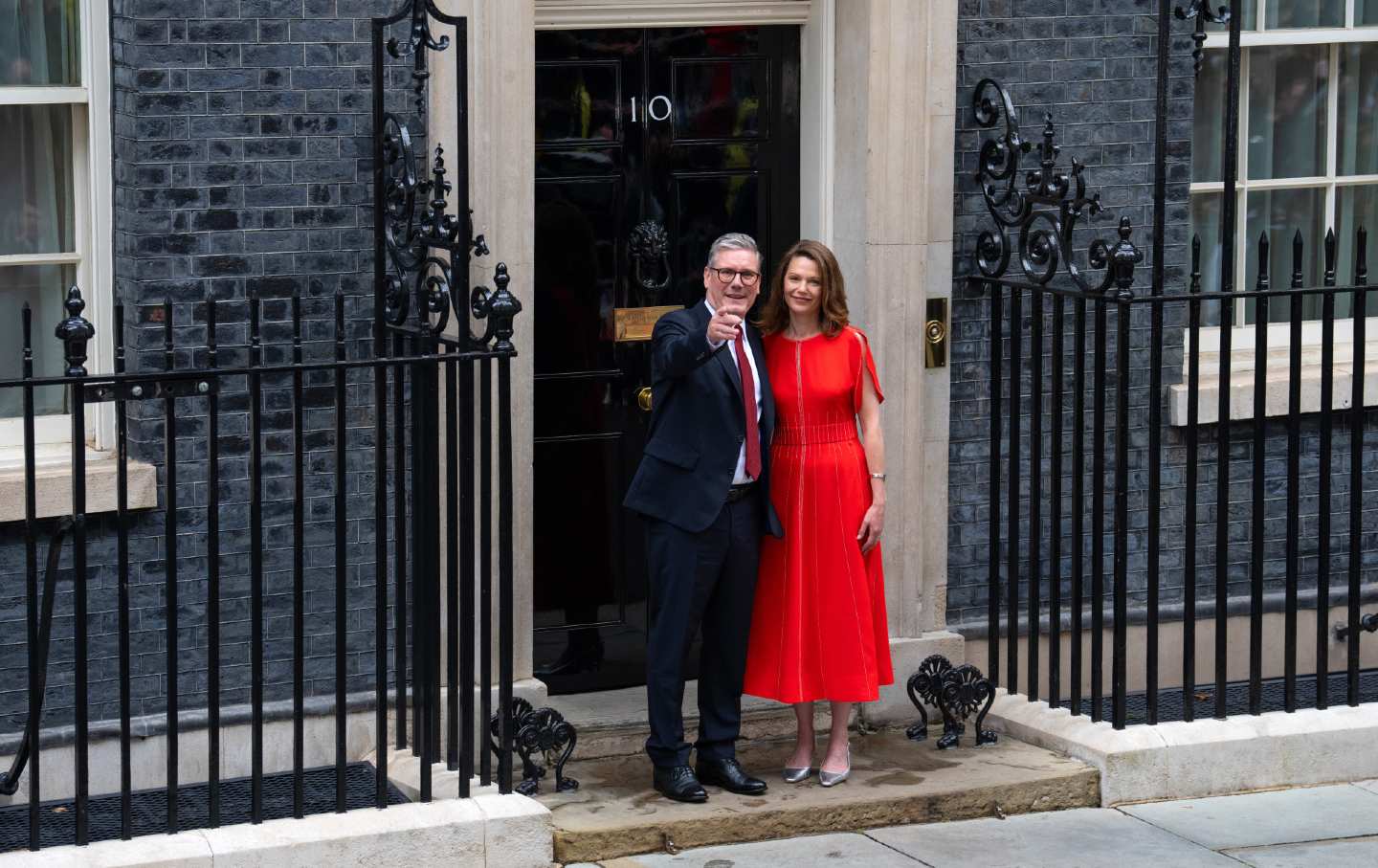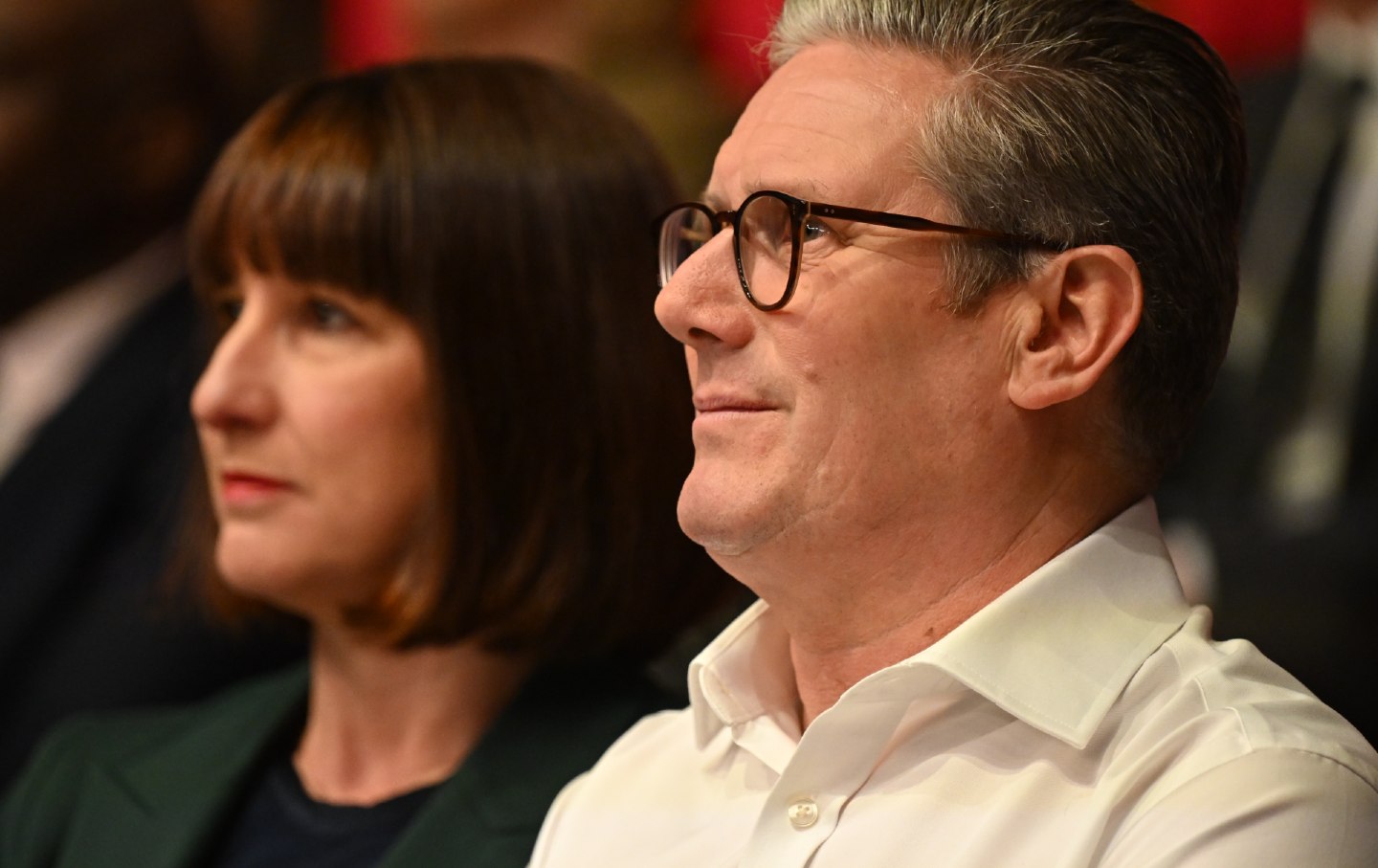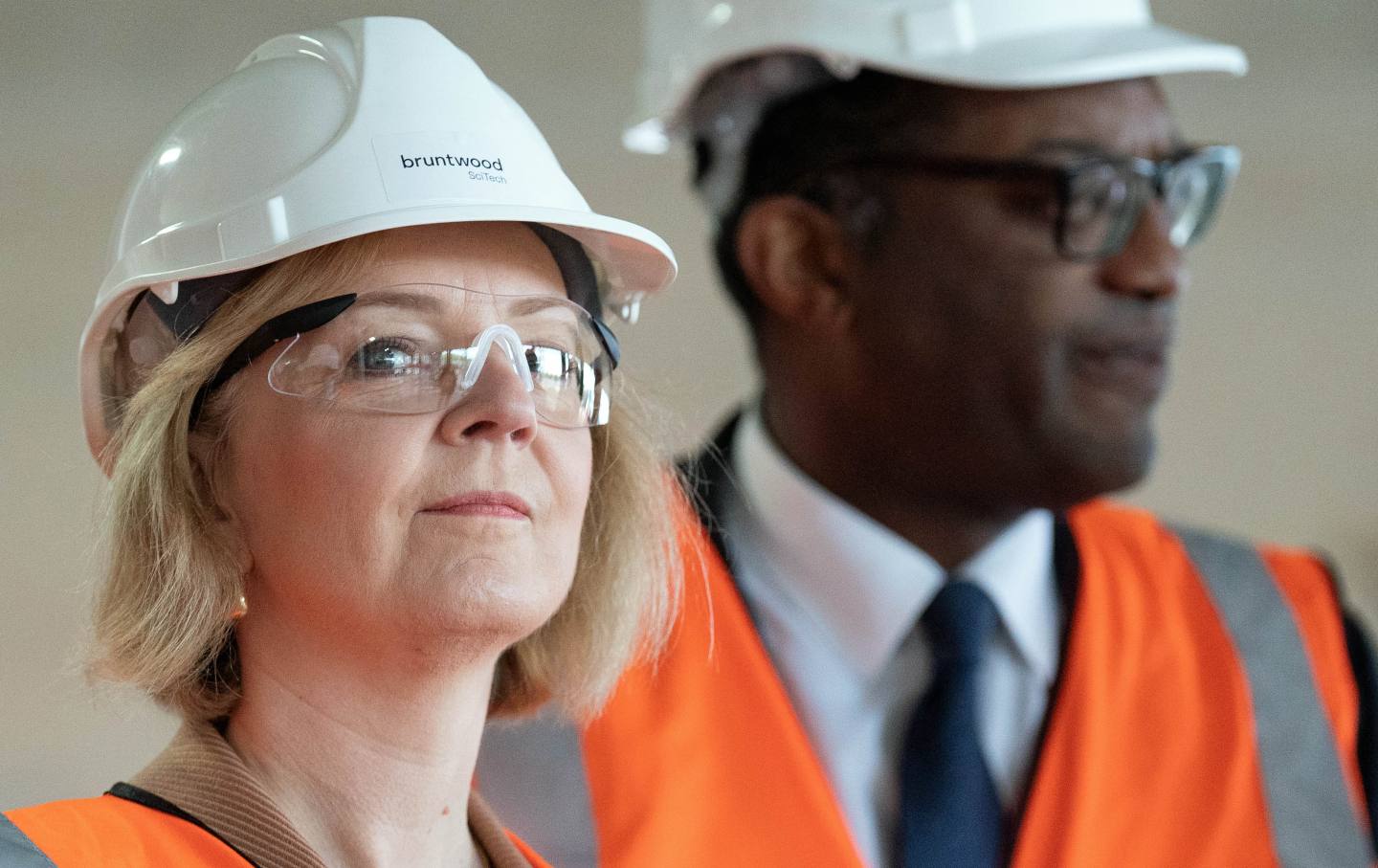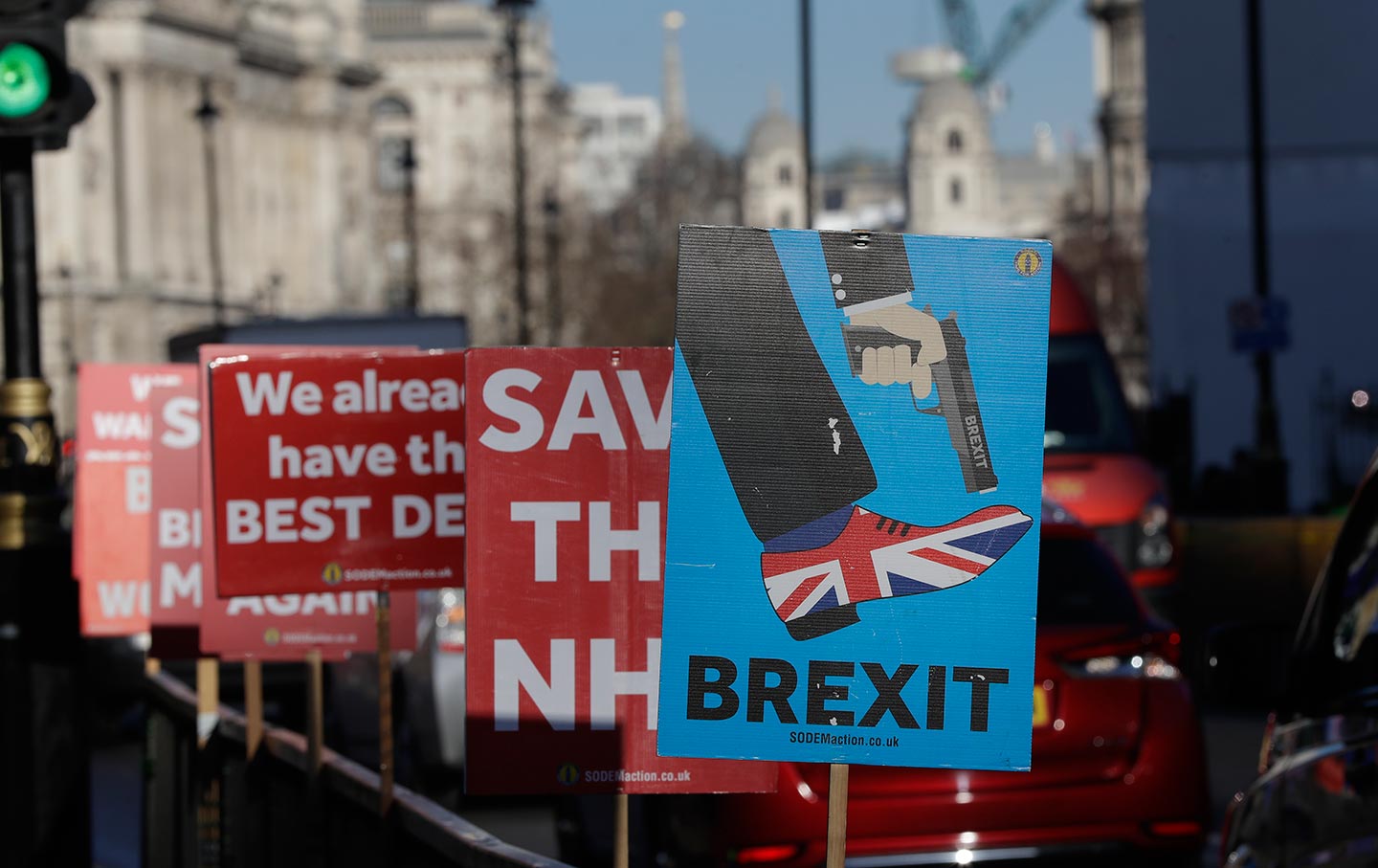Britain’s Labour Leader Seems Oblivious to the Political Signals From Europe
Keir Starmer looks certain to be Britain’s next prime minister—but he’s using the same centrist playbook that has opened the door to the far right in France and Germany.
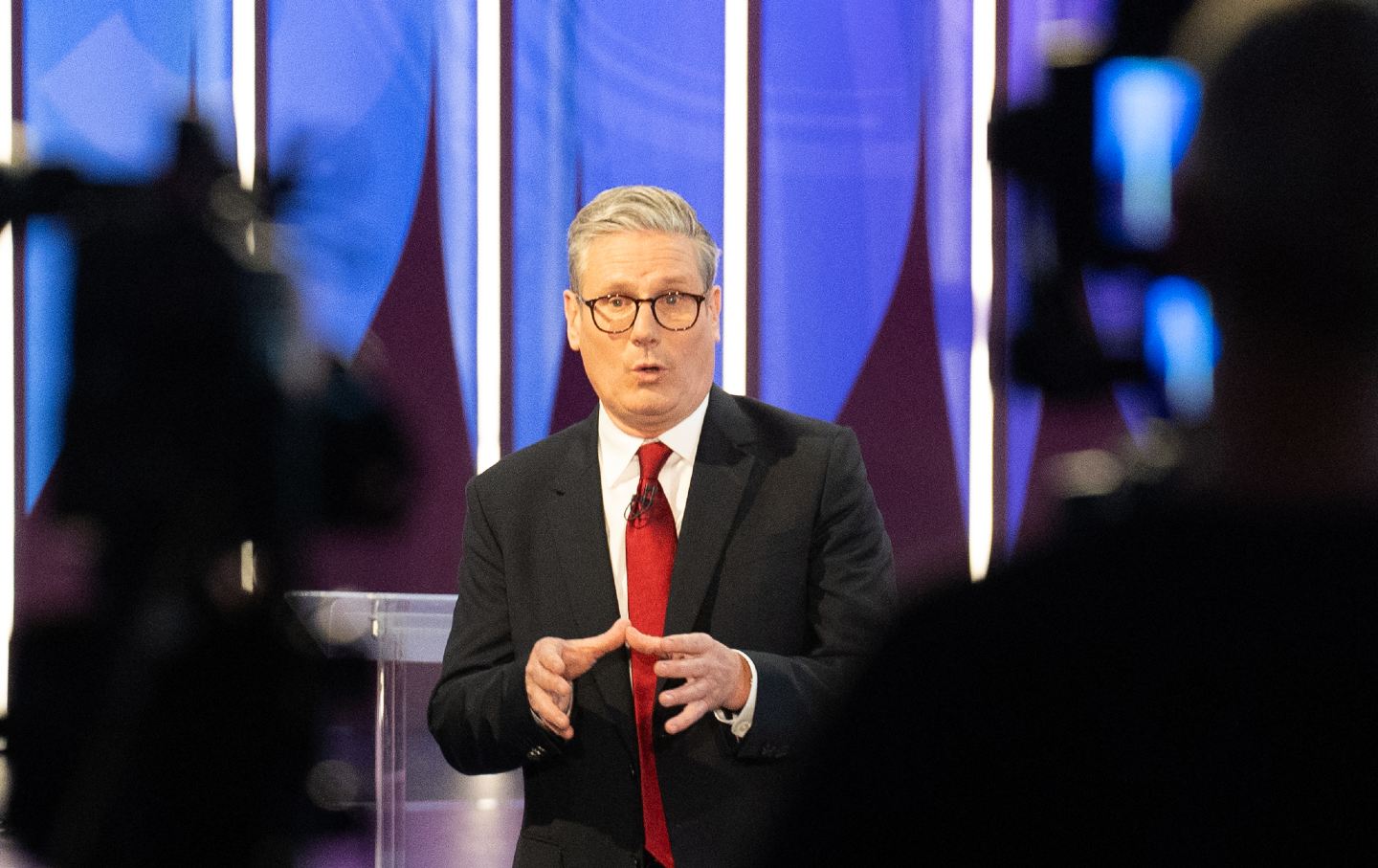
London—Britain’s general election is still a week away, but the outcome is already certain: Nothing much will change. With the far-right Reform UK party sucking support from the collapsing Tories, Keir Starmer’s Labour Party looks on course for a sizeable parliamentary majority. But while the word “change” is sprinkled liberally through his campaign publicity, the overarching message is that he will deliver “economic stability” through “tough spending rules” that he insists will generate growth while keeping taxes down.
This is a circle that British politicians have been trying to square for decades. Their premise has been that relatively low taxes on profits and wealth will encourage domestic investment and lead to growth. The problem is that they haven’t: Since the 1990s, overall investment in the UK has flatlined at around 17 percent of GDP, well below the 20–25 percent range of other G7 countries. Within that, public investment has been running at a miserly 1.5 percent of GDP.
Lydia Prieg, the head of economics at the New Economics Foundation, says the UK is “living with the consequences of decades of underinvestment” and that by sticking to arbitrary fiscal rules “the major political parties are threatening to doom the UK to years of stagnant or even falling living conditions, along with an inability to meet the future challenges of the climate crisis and an ageing population.” As the Financial Times recently reported, outside of London the UK is now poorer per capita than Mississippi.
Even on the National Health Service, a totemic issue for Labour, Starmer’s promise to bring down record waiting lists rests precariously on minimal extra spending. An analysis by the health think-tank, the Nuffield Trust, found that the annual real increase in funding over the next five years promised by Labour is, at 1.1 percent, only fractionally above the 0.9 percent offered by the Tories and would leave the NHS with £20 billion a year less than required for its plan to recruit up to 360,000 extra staff by 2036/37.
Having promised to keep taxes down, Labour is relying on economic growth to generate greater tax revenues. But Starmer’s only specific levers for achieving growth are a controversial de-regulation of planning to allow development on the country’s green belts and a National Wealth Fund capitalised with £7.3 billion over five years—a meager sum compared with Australia’s investment in 2006 of AUS $60.5 billion (circa £25 billion) to set up its Future Fund (which is now valued at AUS $223.4 billion).
In the absence of significantly higher growth, and given commitments to increase military spending and remain “steadfast” in aiding Ukraine, Labour’s sums do not add up without deep cuts in “unprotected” areas of spending such as local government services and welfare—an alarming prospect already signaled by Starmer’s refusal to abolish a Tory-imposed cap that restricts welfare benefits paid to families to their first two children.
On a visit to Britain last week, Naomi Klein described this centrist caution as “reckless” because “it creates the conditions under which the radical racist right is surging.” Drawing parallels with developments in Germany and France, she said, “I’m seeing Labour poised to make the same mistakes…I think the message that we’re seeing from Europe is that there really need to be policies that meet people’s most urgent needs, and what we’re hearing from [Starmer] about fiscal rules and basically sounding like Margaret Thatcher on running the government like a household is ridiculous and is going to set the table for a far-right comeback.”
Her warning was echoed by Kate Dove, chair of the left-wing pressure group, Momentum, who said, “If we as Labour do not offer real change it will be a radical right that picks up the pieces…. The rise of the far right in France and Germany in the European elections tells us exactly that.”
The Green Party and independents such as Labour’s former leader Jeremy Corbyn are mounting a strong challenge to the austerity narrative, despite their limited access to mainstream media. The Greens, for example, are advocating a wealth tax of 1 percent annually on assets above £10 million and of 2 percent on assets above £1 billion and want taxes on capital gains and dividends to be aligned to those on earned income. They estimate that, once fully implemented, these measures will bring in an extra £50 billion to £70 billion annually to help fund public services and a Green Economic Transformation.
Public support for radical policies is strong—71 percent back a wealth tax—but the potential for the far right to exploit economic insecurity by stoking fears about migration should not be underestimated. Reform UK, the successor to the Brexit Party, started the campaign polling at 11 percent but has climbed to 17 percent in the three weeks since Nigel Farage changed his mind and decided to stand for Parliament, allowing him to take over as leader and appear in television debates. Under Britain’s first-past-the-post electoral system, Reform probably won’t win many seats in the 650-member Parliament. Paradoxically, in taking votes from the Tories, it will help Labour secure a larger majority, even with less than 40 percent of the popular vote.
For the Greens, independents and smaller left parties it is similarly very difficult to win seats. Currently polling around 7 percent, the Greens could double their previous best popular vote of 1.1 million (2015) but still only add one or two seats to the one they already hold. Meanwhile, it would be politically seismic if more than two or three of the 20 or so credible independents standing were to win. Corbyn is the standard-bearer, but Labour is pulling all the stops out to defeat him in Islington North with Blair’s election guru Lord Mandelson committed to doing “everything” he can and campaigning personally.
The left’s electoral challenge is not helped by disunity over tactics. George Galloway, the veteran peace campaigner who won a parliamentary by-election for the Workers Party in Rochdale in February, opposes supporting any Labour MP—regardless of their position on Gaza or other issues—arguing that they would have left the party “if they had any decency.”
But the reality is that 56 of the 125 votes in Parliament last November for a cease-fire came from Labour MPs defying Starmer’s orders to abstain. While some of these MPs took this stance only because of pressure from Muslim voters in their constituencies, most were acting out of conviction, including long-standing Palestine solidarity campaigners—such as John McDonnell, Richard Burgon, Zarah Sultana, and Apsana Begum—who have all spoken at the huge demonstrations in London.
Labour’s candidate selection process was likened in the London Times recently to “J Edgar Hoover’s FBI” in being “ruthless, relaxed about extrajudicial killings and utterly intolerant of left-wing thought.” It does, however, favour incumbents and that meant that 29 of the 34 sitting Labour MPs who belong to the Socialist Campaign Group survived to stand in this election. With affiliated trade unions having played a role in securing candidate slots for their own activists, the potential number of left-leaning MPs in the new Parliament is such that Starmer’s chief whip is reported to be worrying that Labour needs a majority of more than 60 to survive the kind of rebellion that prevented Blair from introducing 90-day detention without charge for terror suspects in 2005.
Popular
“swipe left below to view more authors”Swipe →In France, the left formed the Nouveau Front populaire within days of President Macron’s unexpectedly calling parliamentary elections that could see Marine Le Pen’s Rassemblement National winning. Jean-Luc Mélenchon, the leader of one of the four parties involved, France Insoumise, hailed it as “good work that thwarts the division on which Macron and Le Pen were counting.”
It is probably too late now for any similar outbreak of left unity to make much difference to the outcome of the general election in Britain. However, it will be vital afterward in building mass resistance as Starmer ploughs ahead with austerity and a Washington-led foreign policy. Britain’s electoral system and Labour’s unique union-based structure make for complications, but the spirit of Mélenchon’s words should still apply.

